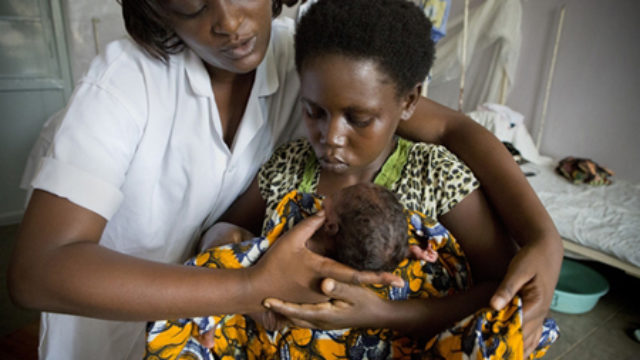Juliet Uduji
The Federal Government yesterday launched the Reproductive, Maternal, Newborn, Child, Adolescent and Elderly Health Plus Nutrition (RMNCAEH+N), a multi-Stakeholder Partnership Platform geared towards the achievement of Universal Health Coverage (UHC), especially for women, children and the elderly.
While launching the platform in Abuja, the Minister of Health Dr. Osagie Ehanire explained that although the platform will further bolster the country’s already weak health system, at least $252 million will be required for full implementation of the blueprint across Federal, States and Local Government areas.
Ehanire said:
“The health of Nigerian women and children has not fared too well, given Nigeria’s poor health indices where the maternal mortality ratio is 512 per 100,000 live births, prenatal mortality rate is 49 per 1,000 live births, neonatal mortality is 38 per 1,000 live births, infant mortality is 67 per 1,000 live births and under-5 mortality is 132 per 1,000 live births (NDHS 2018).
“Female genital mutilation (FGM), gender-based violence (GBV), teenage pregnancy, unplanned pregnancy and unsafe abortion among adolescents, as well as the impact of the COVID-19 on the elderly, have all become major public health emergencies.
“There is an increase in the prevalence of wasting among children due to malnutrition. A lot still needs to be done by a combination of the authorities, stakeholders and partners to ameliorate the plight of Nigerians in the aspect of healthcare despite the modest but slow progress made over the last decade.
“We have recorded some progress towards the improvement of child survival and safe-motherhood through the provision of ready to use therapeutic food (RUTF) and sustaining the Family Planning 2020 (FP2020) commitments to ensure the availability of family planning services to women and adolescents of reproductive age.
“In the same vein, making the National Health Act, 2014 (NHAct) through the Basic Health Care Provision Fund (BHCPF) operational, will greatly improve access to quality health care, particularly at the primary health care (PHC) level.”
The minister expressed optimism that the National Emergency Medical Treatment Committee (NEMTC), will provide emergency medical transport for health emergencies, including pregnant women, to facilitate access to emergency obstetric care at the time of need.
“The provision of emergency transport alone has been demonstrated to reduce maternal mortality by as much as 50 per cent,” he said.




